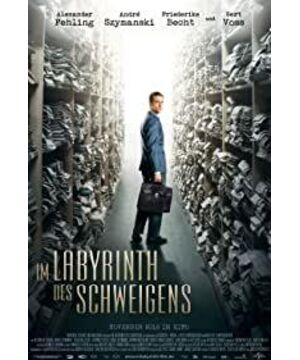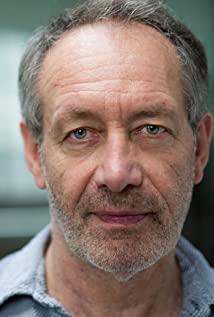In terms of film aesthetics, maybe only three or four stars, five stars are given because of the stance and reflection of this film. The film expresses disapproval in the Nazi trend of humanizing cinema.
The background of the film is West Germany, where the economy recovered rapidly after the war in 1958. Everyone is trying to forget the past war, especially the perpetrators. The younger generation did not understand what the Nazis were referring to and what kind of evil Auschwitz had committed. The story begins with the young prosecutor's search and ends in the second Auschwitz trial.
World War II ended and the Cold War began. The reckoning of fascism in the Soviet Union and East Germany has left West Germany with nothing to say about that history. Without a legal trial, the entire society turned a blind eye to that atrocity. A former officer could become a primary school teacher, a baker, everyone in West German society. There is no way to try them because they were ordered to act, there is no way to prosecute them because there is no way to prove the crimes they ever committed. They are just one link in the chain of sins, and everyone can pick up their sins with a single "here's a command". At the same time, you can also see those high-level military officers, those big capitalists with rich families, who were not tried at all after the war, and they can even be said to be living well. But those survivors were crushed to death by a huge sense of guilt and dared not look back on their past lives.
Because the enemy is the Soviet Union, can we ignore the sins of the fascists? Because the previous law cannot judge fascist atrocities, can it only become a media carnival? Construct stories of perverted murderers one after another, turning the brutality of the system and institutions into the evil deeds of one perverted person. The banal evil cannot be judged.
Why ask the victims of war to forgive the trauma of war, why say everything can be passed and forgotten.
View more about Labyrinth of Lies reviews











